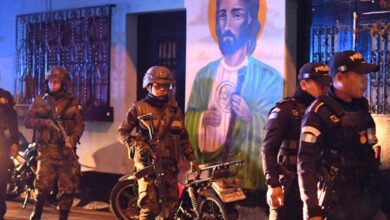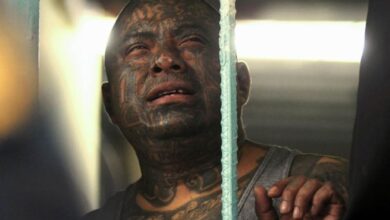National Strike in Guatemala: Indigenous Communities Ask For Resignation Of Prosecutor
Today, indigenous communities have declared themselves on strike in Guatemala. They ask for the resignation of the prosecutor in defense of democracy and of the elected president Bernardo Arévalo. Here we tell you the reasons .

Photo: TW-raftulum
EFE
Listen to this article
Leer en español: Paro nacional en Guatemala: Comunidades indígenas piden renuncia de fiscal
Hundreds of Guatemalans, mostly members of indigenous communities, began an indefinite national strike this Monday to demand the resignation of the attorney general and head of the Public Ministry, Consuelo Porras, for her attempts to intervene in this year's election results.
The protest was called last week by the indigenous group 48 cantones of the department (province) of Totonicapán (west), and was joined this Monday by dozens of civil and social organizations.
Guatemalan authorities confirmed this morning that at least seven roads connecting the territory are blocked by indigenous communities, including a sector of the capital of the Central American country.
The indigenous leaders ask for the resignation of Porras, prosecutor Rafael Curruchiche, and criminal judge Fredy Orellana, whom they accuse of wanting to modify the electoral results of the elections held in June and August.
"We declare ourselves on an indefinite national strike, calling on all citizens and organizations in the country to join the protest," said a statement from the 48 cantons of Totonicapán.
Context: a rather complicated transfer of power
The march comes three days after the Public Ministry raided the Supreme Electoral Tribunal for the fourth time and confiscated boxes with votes, despite the rejection of local and international organizations that accuse them of violating the law.
Likewise, on September 1, the elected president, Bernardo Arévalo de León, accused Porras, Curruchiche and Orellana of carrying out "a coup d'état" against him to prevent his inauguration as president next January.
Read also: 5 Keys to Understand the Eventful Process of Command Transition in Guatemala
The indigenous leaders assure that the "arbitrary" actions that these officials are carrying out are "attacking democracy" in Guatemala.
Precisely in this regard, the United States Government announced on Sunday sanctions for those who "undermine" democracy in the Central American nation.
“We are taking active steps to impose visa restrictions on individuals who continue to undermine Guatemala's democracy,” State Department spokesman Matthew Miller said in a statement.
Arévalo and the elected vice president, Karin Herrera, have also called on the people to peaceful demonstrations to defend democracy.




